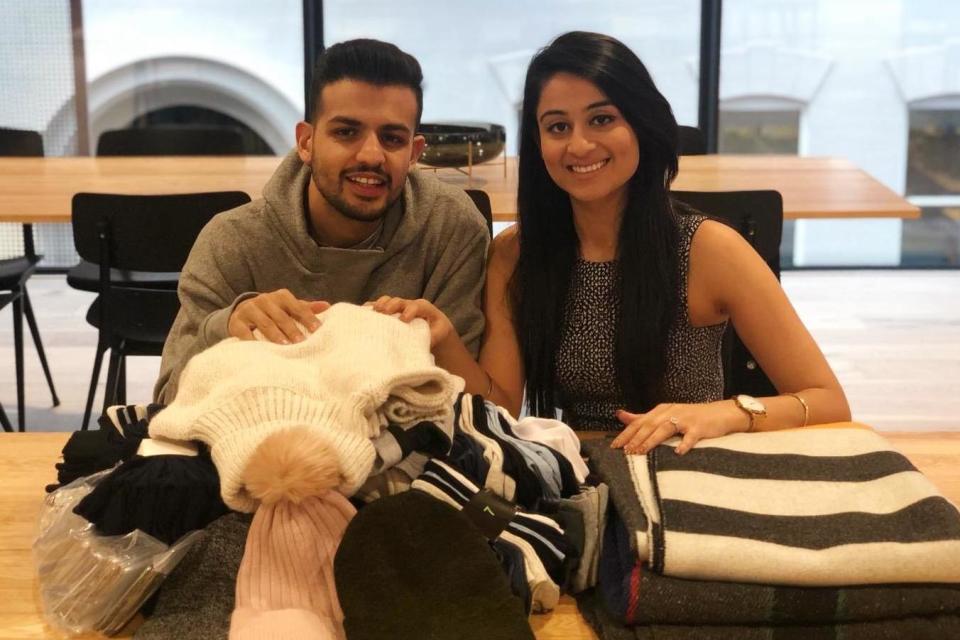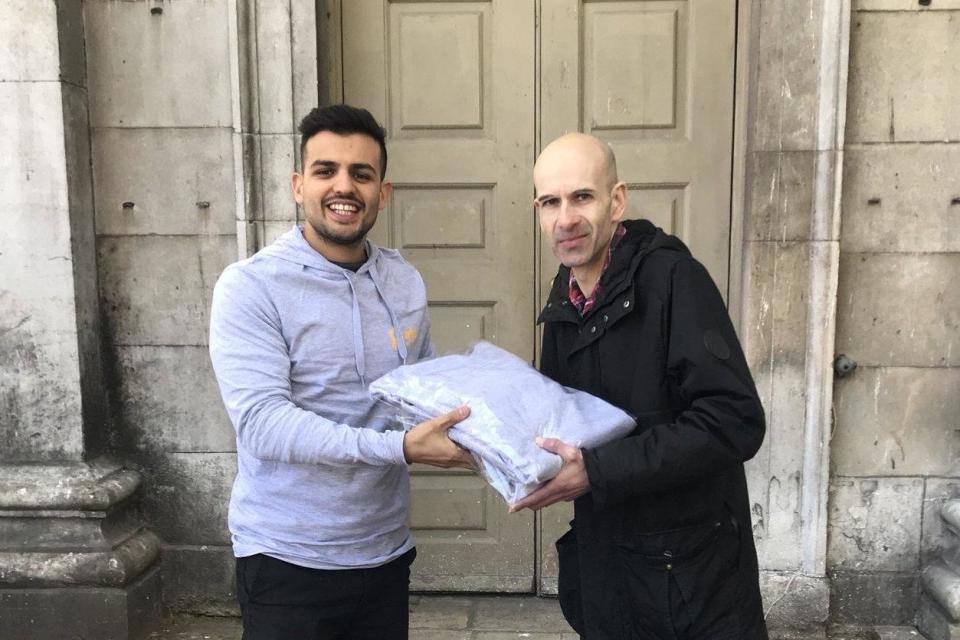Unhoused: The online shop that helps homeless people battle the cold in London
An online shop selling winter supplies for Londoners during the freezing cold snap is donating matching items to homeless people in the capital with every purchase.
"StreetWear", launched by social impact startup Unhoused in November, invites people to buy and donate items to the homeless, including warm jumpers, socks, gloves and beanie hats, and allows customers to see who has received their donation.
The website, founded by London couple Varun Bhanot and Anisha Seth, operates on a "buy one, give one" model, meaning for every warm item a Londoner purchases for themselves an equivalent one will be donated to a rough sleeper in the capital.
The organisers then send a photo, video or message to the customer to show them how their money has been spent.
Snug items such as blankets are all available to buy through the shop in addition to donation-only items including sanitary kits, haircuts and mobile phone top-ups.

The idea for the website came after Mr Bhanot, who works for tech firm Hubble in Shoreditch, realised that people were hesitant to give money to the homeless directly on the street near his office.
StreetWear aims to bring transparency and feedback to the donation process, while allowing people to donate online, the organisation said.
"If you see someone on the street you might give them £2 but you don't know where that's going," Mr Bhanot, 28, told the Standard. "On here people can see where that money is going."
In the last 2 weeks alone, we have packed and sent 100s of gloves, socks, beanies and garments.
Lots of thankful customers, but even more thankful homeless people.
Thank you all for supporting!#homeless #innovation #heroes pic.twitter.com/fHTidkMhqM— Unhoused.org (@Unhoused_org)
Since its launch in early November around 1500 orders have been placed via the website - meaning 1500 donations have been made around London.

"Whenever someone buys something from the shop we show them where that money goes," Mr Bhanot said. "We've found that's been really popular with people on the site."

And the average value of shopper's baskets has been around £20, Mr Bhanot said, suggesting "people are giving more without even realising it".
Unhoused is partnered with three charities who work with the organisation to distribute items at their walk-in centres. These include the Spitalfields Crypt Trust, Salvation Army UK and Sewa UK.
Mr Bhanot added: "We have basic clothes on offer because we want things that are easy to donate, so some five packs of socks right up to jackets, gloves and undergarments.
"There are a few things that are donate-only such as coffees, haircuts and phone top-ups, which is something homeless people need but don't often realise."
The organisation is focused on how tech and innovation can tackle the current homelessness crisis. For this project, Mr Bhanot said he and his recent fiancee were inspired to "apply the ASOS model" to charitable donations.
He said: "We thought let's set up ASOS for the homeless in time for winter, so everyone can buy their winter clothes and donate."
Looking forward, Mr Bhanot said he and Ms Seth have a "broader vision" for the startup with possible future innovations including a bank for the homeless.
He said: "With Unhoused we don't just see it as a shop. Being in tech, I'm always seeing innovations. One idea is a digital bank but for the homeless.
"One of the biggest problems is that they are financially excluded from banks because they don't have proof of address."
In a statement, Ms Seth, 28, said: “Clothing and supplies that are donated to charity are often used and second-hand, which is absolutely fine. However, this allows an opportunity for brand new, quality clothing or items to be distributed, giving the homeless greater dignity and quality of life. It may even increase their employability.”
Bali Bhalla, of Sewa Week UK, said: "We always hear of cool technology businesses in the news, but the problem is that charities tend to be the last to benefit from these innovations. Maybe as we are non-for-profit organisations.
"Every time there's a new digital innovation, it's not usually for social good causes so this is a very welcome idea."

 Yahoo News
Yahoo News 
